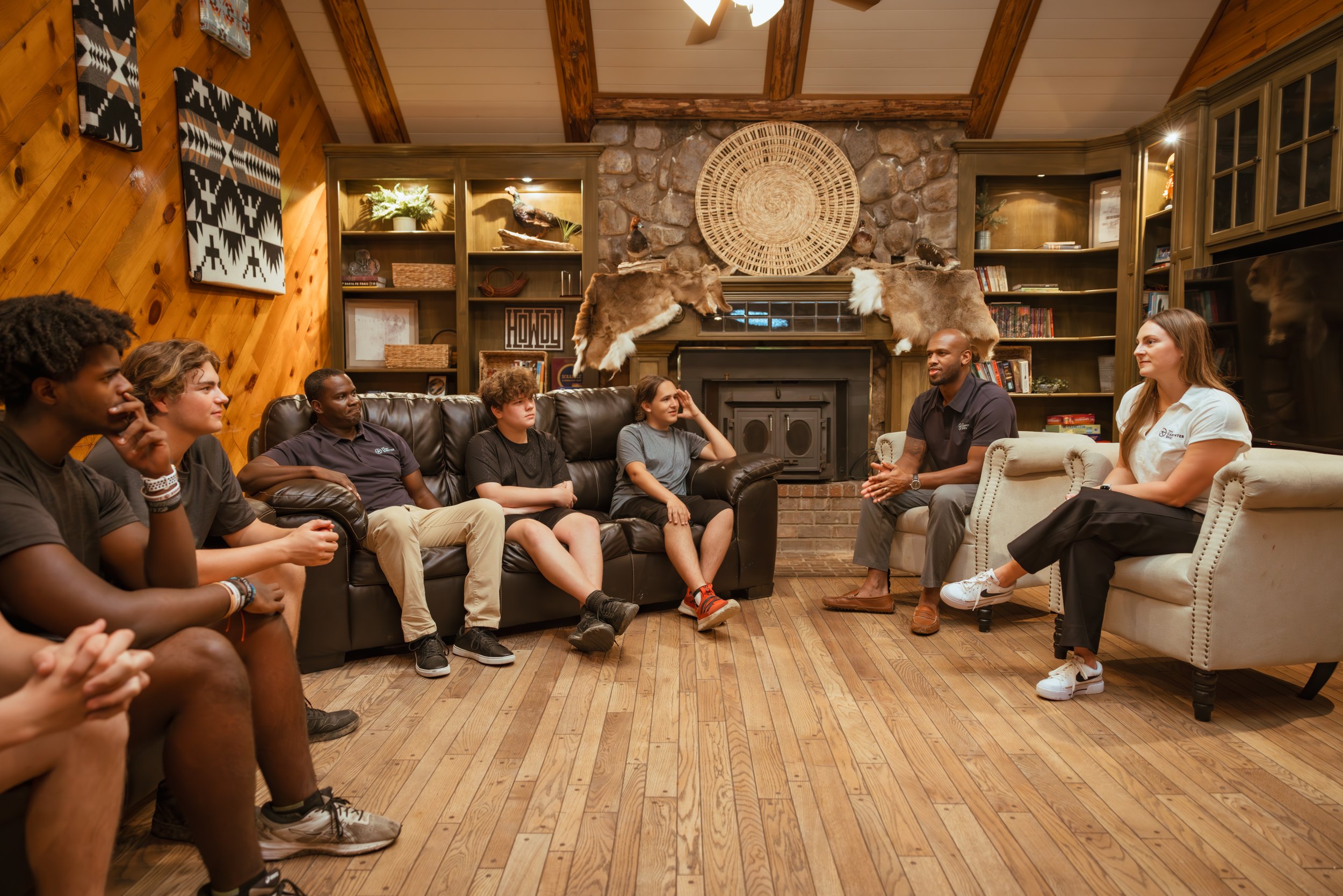
Who We Serve
All too often, young men are lost, feeling broken, and thus manifesting in “failure to launch”– a Peter Pan-like, perpetual adolescence. The Carpenter Shed welcomes young men, ages 16–20, that suffer from a failure to launch and frequently resort to escapist releases because of past trauma.
We are experts at treating boys with substance use disorders, depression and anxiety, mood disorders, PTSD, family problems, low self-esteem and many other issues so we can help them move forward with a sense of purpose. Every application is screened carefully by our team prior to approval. Below are some helpful tips when determining if a client profile is appropriate for entering our program at The Carpenter Shed.
From Adolescence to Adulthood
Wondering if Your Son is a Fit for Our Program?
Here’s what you need to know —
Age
The Carpenter Shed is a transitional program for young men aged 16 to 20 experiencing mental health and substance use challenges and requiring guidance, support, and mentorship to find their place in the world.
Neurodiversity
Our program is designed to serve young men with neurodiversity, including ADD, ADHD, and Level 1 ASD. All neurodiverse presentations require further assessment during the intake process.
Safety
We often work with young men that have shown aggressive behaviors within the home. Aggression outside of the home would need further assessment prior to approval and would be screened closely.
Gender
The Carpenter Shed works with biological male clients. There are other programs that specialize in helping young men who are exploring their gender and sexuality. We believe that they would best serve this client profile.
Co-Occurring Disorders
While we help with many mental health and substance use disorders, there are some co-occurring disorders or situations that may be better suited for another facility. Some examples include:
Substance use needing detox
Primary elopement or assault
Sexually offending or assaultive behavior
Parents unwilling or unable to participate in family programming
More than 1 suicide attempt within 30 days
Unstabilized Mental Health
Medical fragility beyond our ability to accommodate
Administrative discharge from another facility requires further assessment
Probation requirements that we are unable to accommodate, or we deem disruptive to our program

Many young men today are finding themselves confused with no clue on how to become the purposeful and honorable men with direction. They are depressed, anxious, addicted to escapism, instant gratification, in the form of alcohol, drugs, gaming, social media or porn—many of which are symptomatic of underlying trauma.
The Answer You’ve Been Looking For
Transitioning Out of Treatment
Following treatment, it can be difficult for a young man to assimilate into the real world and not slip back into old negative behaviors. We ease the difficult transition for our young men and their families by providing the tools to find purpose, meaning, and direction for his life. Our residents stay on-site, allowing them to become stronger physically, mentally and spiritually, providing them the tools and the confidence to move forward and achieve their goals in everyday life.
Isolated & Disengaged
In modern society, many young boys have become unmotivated, bored, secluded, and depressed. To the outside world, they appear angry, defensive, and entitled. But what they really are is stuck. These young boys isolate in their bedrooms away from family, disengage from school and friends and detach from anything that gives meaning and purpose. We show them how to overcome these barriers and live in the outside world. We show them how to become strong young men who have purpose, meaning, and direction.
Struggling With Substance Use
Often presenting as angry and lost, these young boys can’t articulate the reasons for their outbursts. They are resistant to rules and consequences. Families have lost their ability to guide and direct their son. They choose chaos over calm, because they don’t have the tools to regulate their emotions. We provide a structured environment that will give them the specific tools they need to help them express and regulate their emotions.
Mental Health Challenges
Complex PTSD, developmental trauma, anxiety, depression, or mood disorders are common mental health problems we see at The Carpenter Shed. A variety of life experiences and circumstances can be behind these presenting problems: the pain of divorce, being bullied, feeling rejected, and even being misunderstood. While at our program, your son will work with our team to help redirect these self-destructive negative thoughts and behaviors.
Ready to get started?
Give us a call today for more information about The Carpenter Shed.




